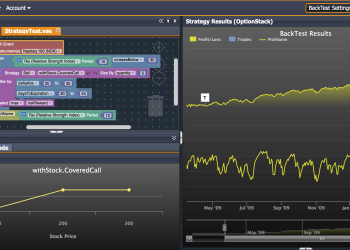Years upon years of treatment and disease consciousness, the adoption of AI has led to earlier diagnoses and robot-assisted surgeries which in turn, improve the quality of healthcare and hospital experiences. Artificial intelligence improves the lives of patient, doctors and hospital administrators by perform tasks that take to humans typically but in less time at fraction of cost. AI in health care may be used to dig up new links between genetic compositions, control autonomous robotic tools, automate administrative processes, customize treatment opportunities and other ways that artificial intelligence impact health care. AI is so precise and is contemplating and strengthening the present-day and future healthcare by being capable of thinking and realizing, learning and acting.
The AI definition in the field of healthcare encompasses a broad range of technologies that help to streamline diagnosis, treatment, and management. Artificial Intelligence in healthcare, deep learning and others, such as machine learning, a natural language processing and other types of AI, are applied, either by patients or healthcare professionals, to improve their experiences. The AI-based processing and forecasting technologies introduce a new agility and responsiveness into the healthcare system, and allow health professionals to use their resources more efficiently across multiple functions of healthcare.
It gives physicians a chance to detect conditions in a faster and more efficient manner, health administrators find health records using electronic search methods and patients become beneficiaries of new treatments that are more continuous and individually tailored. IA (intelligent automation in healthcare) is a burgeoning field that has the potential to positively impact various aspects of healthcare delivery. In an attempt to give an insight into the fast-developing facet, as reduce process we will discuss a few examples and use-cases of AI in healthcare.
AI In Medical Diagnosis
Every year approximately 400,000 hospitalized patients experience injury caused by medical negligence, out of which there are more than 100,000 deaths. Therefore, the essence of AI is about the future of the medical domain which includes the ideas of enhanced diagnostics, as one of the most promising applications in healthcare. Inadequate medical records and excessive workload make give rise to the factor of medication errors. As a result, AI is immune to those variables and so it is able to analyze and assess individuals at a faster pace than most medical professionals. That’s why it’s the most effective way of the technology involving with the medication.
AI In Drug Discovery
Developing new drugs includes face-to-face investigations that usually demand enormous time, money, and efforts from both industry and academia. Sending each drug through clinical trials is estimated to be an average of $1.3b per drug. Only 10% of the drugs which go to clinical trials are being brought to market successfully. Different technologies advances made AI reduce this duration by identifying drug targets, this is done through the testing of AI-generated drug candidates and identifying key candidates for the trials.
AI In Patient Experience
AI can be implemented to enhance digital engagements, featuring the setting reminders, some personalized advice to patients and suggesting the possible next action. The fact that AI helps in health diagnoses makes the speed and the accuracy of health care move faster and the care becomes more personalized due to the AI. This also prevents needless delays and enables a greater number of people to be treated with comparative efficiency which in turn increases patient count.
AI In Healthcare Data Administration
From the exorbitant amount of the information to the trillions of data points, it could get hard to find the most highly valuable one. On the other hand, multiple disconnected data points make it difficult to analyze which could lead to delayed novel drugs, preventive medicine and appropriate diagnosis. As a result of its work logging vast amounts of data, AI eliminates information and, in a few minutes, information retrieval that used to take years. Therefore, an outlet of this is that it can cut the time and the costs of the healthcare administrative operations, as a result, a more efficient environment and patient experiences will be added as well.
Ai In Robotic Surgery
In hospitals, AI and robots are used for all sorts of surgeries including minimally invasive as well as open heart surgeries as well. Surgeons can operate robotic arms that are sitting at a certain distance from what they are viewing on a virtual reality game. This robot is also giving the doctor an enhanced view of the site of surgical operation. The surgeon gets the other team members (who join other team members to work closely with the robot) and leads them through the whole operation assisted by the robot.
In addition to this, we will also go into depth in AI that include ChatGPT and copy.AI, as to how they work in quality departments in hospitals today.
Improving Patient Safety
One of the key tasks of the hospital quality departments is the development of measures that would provide the patients under treatment with quality and essential in terms of efficacy and decreased risk of potential dangers. AI presents the ability to learn these situations from studying a large number of patients’ records that may have safety problems. AI algorithms can look over patient data to discover the patients who suffer from advanced aging-related topics such as worsening mental conditions, falling risk or even the other negative health effects. It is possible to design such process that is to identify the root causes of these incidents (if any) and then develop targeted interventions to prevent these events from occurring. There are possibilities that AI can solve the problem of medication safety as well. AI algorithms can examine prescriptions, resulting in the detection of drug interactions or mis dosage errors. This would help the quality departments to make clinical decisions of providing the right medications with the applicable dosages to the patients.
Streamlining Quality Improvement Processes
High-quality departments occupy the role of the watchdog that checks the quality of hospital performance and raises concern over the budget imbalances. AI can be this way by writing about all the activities that can be automated during quality improvement process. AI algorithms can investigate the historical data of patients and try to predict a comparable fact as a possible target for improvement. This allows the quality department to allocate their time and resources overs essential points rather than focusing on areas that have a lesser impact on the overall quality of the product. AI can be an important data collector and analyzer. AI-driven systems can harness and examine data from various origins including electronic health records, patient’s questionnaire and quality performance indicators. It will not only reduce the wastage of precious resources and working hours but will also enable the quality department to concentrate on other important stuff.
Enhancing Patient Experience
On the top of the list of hospital quality departments ‘ goals is to improve the text of a hospital stay. AI can help in this task by processing patient feedback and uncovering the core areas where the improvements have to be done. To illustrate the example, a robot could analyze patients’ satisfaction surveys to find out what they commonly complain about and on which aspects they think they don’t get the necessary care. There is a potential for quality departments to tender specific strategies based on the intelligence generated.
Notwithstanding AI is equipped not only with patients’ communication but as well. Therefore, like ChatGPT – for instance, is an AI-powered Chatbot which may communicate with patients to provide them customized information and support. Chatbots such as ChatGPT serve to improve the interface as patients feel more connected to their care and also for them to gain sufficient knowledge to make the right health decisions.
Improving Staff Performance
Besides quality departments, hospital staffs also go through assisting mechanisms to ensure that they meet the set standards of the hospital. AI can be essential in addressing the performance issues of the staff through analyzing an expert performance data to illustrate the areas that need to be corrected. For example, the algorithms may search for instances where healthcare professional documentation is incomplete or includes mistakes or incoherence. The answer to this can be staff training programs done under expert supervision which leads to quality improvement. AI can affect on the regular planning of on-call staff too. Employing AI systems can conduct analysis on staff levels and patient demand to decide on the best possible staffing schedule. Hence, patients may receive care when they need it.
Streamlined Documentation and Compliance
One of the most significant issues for care service departments dealing with the collection of documentation, policies, and procedures is the quantity of information. AI Chat Box can do a lot in respect to this issue and that is improving written documents like combining action points and other necessary information in the best possible way in real time. These range from speed works and lessons that may increase knowledge. The natural language processing features, for instance, enable quality assurance departments to ask questions, seek clarification, and receive accurate information by giving direction promptly. Lastly, the AI Chat box solution is tailored at making compliance mandatory by way of providing instructions and advices in line with the industry standards and governing bodies.
Conclusion
The use of AI can be seen for the diagnosing of diseases, assisting in designing the personalized treatment plans, and improving the accuracy of the decision-making processes of the clinicians. Rather than simply automating tasks, AI is about developing technologies that can enhance patient care across healthcare settings. However, challenges related to data privacy, bias, and the need for human expertise must be addressed for the responsible and effective implementation of AI in healthcare.
Author Bio:
Mark Berry is a paralegal and lifestyle blogger who concentrates on playwriting, tips and hacks for skin and hairs, travel, marketing strategies, Credit Counseling, real estate, and self-development & social dealing. He loves exploring new places and sharing life experiences with the audience.















